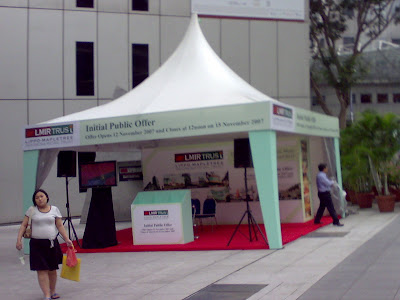Happy Chinese New Year 2026
The Horse is a symbol of freedom, independence, stamina, and spirited adventure. The colour Red and the Fire element are associated with passion. Fire is also associated with clarity and change. The Horse is also associated with speed, confidence, and energy. Wishing all readers a Healthy and Prosperous Year of the Horse and continue to gallop strongly in your pursuit of financial freedom!


Comments
Basically what i meant is that the big players who wants to buy the Trust will be able to get their placement allocation and there is no need to buy the shares from the post-ipo market and the price will not 'move up' if big players dont push up the price.
Thanks."
Hi Michelle, please ask your questions here, easier for me to reply. It depends on the size of the float and the demand for it from institutional investors. In addition, the timing is also crucial to investors. Imagine a REIT launching a REIT at the peak of the property bubble, the owners will be happy to 'cash out' at high property valuation by selling to investors but investors who bought into the REIT at that time may face a decline in value of the properties when the down cycle starts.